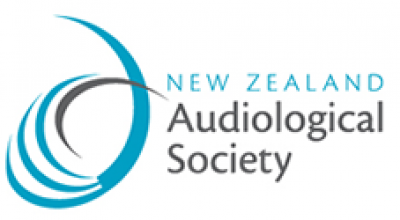NZAS Position Statement on Over-The-Counter Hearing Aids
The New Zealand Audiological Society (NZAS) released a position statement on Over-The-Counter (OTC) hearing aids in September 2024. You can find the full document at the link below.
NZAS OTC Hearing Aids Position Statement >
Here are some fast facts regarding OTC hearing aids.
What are OTC Hearing Aids?
- OTC hearing aids are devices that people can buy to help with hearing loss.
- They are designed for adults with mild to moderate hearing loss.
- They can be bought online, by mail, or in-person without needing to see a hearing healthcare professional.
- It is suggested that OTC hearing aids more affordable and convenient, but there are concerns about their effectiveness without an audiologist or audiometrist doing the fitting and providing support.
- The Food and Drug Administration (FDA) in the USA has set rules for these aids, including safety and effectiveness standards. They must meet certain criteria, like being able to adjust volume and pitch, and must be safe to use without a professional (like an audiologist or audiometrist) being involved. You can check if a device is FDA-cleared here (Are There "FDA Registered" or "FDA Certified" Medical Devices? How Do I Know What Is FDA Approved? | FDA)
- OTC hearing aids are different from personal sound amplification products (PSAPs) and hearables, which are for people with normal hearing who want to amplify sounds in specific situations.
Who Can Use an OTC Hearing Aid?
OTC hearing aids are only for adults aged 18 years and older who think they have a mild to moderate hearing loss. A person with a mild to moderate hearing loss may have difficulties hearing in some situations, for example, they may turn up the volume on the phone or TV. An OTC hearing aid user needs to be able to follow instructions to fit the device to their ear and adjust the sound as they need.
The NZAS recommends that if you are thinking about purchasing an OTC hearing aid that you consult with an MNZAS audiologist or audiometrist to ensure that you are purchasing an appropriate device for your hearing needs.
OTC Hearing Aids are not suitable for:
- Children or adolescents
- Individuals with ongoing middle or outer ear issues, like ear pain, blocked ears, strong smell from the ear canal, or leakage from the ear
- Individuals with large conductive hearing losses
- Individuals with Auditory Neuropathy Spectrum Disorder
Some of these conditions can't be diagnosed without a comprehensive ear and hearing assessment.
Therefore, if someone has a significant hearing loss or one of the following symptoms, they should see an audiologist or audiometrist before purchasing an OTC hearing aid:
- Malformed or misshapen ear at birth or due to trauma
- History of drainage from the ear within the previous 90 days
- History of sudden or rapidly progressive hearing loss in the past 6 months
- Hearing fluctuates (it gets worse, and then better again)
- Dizziness (just experienced or experienced over a long time)
- Hearing loss in only one ear
- Ringing or buzzing in only one ear
- Significant ear wax or a foreign body in the ear canal
- Pain or discomfort in the ear
Why should I seek the help of an Audiologist or Audiometrist?
NZAS audiologists and audiometrists are trained experts in ear, hearing, and balance-related concerns. They follow a Scope of Practice, Standards of Practice, and the NZAS Code of Ethics. They can provide:
- Thorough hearing assessments to determine the type, degree, and pattern of your hearing loss.
- Professional advice on possible hearing solutions based on your needs and values.
- Assistance with fitting and adjusting hearing aids to fit your ear anatomy, hearing loss and listening needs.
- Ongoing support for cleaning, maintenance, and troubleshooting.
- Counselling to help you understand your hearing loss and use your hearing aids effectively.
- Education on communication strategies, hearing protection, and realistic expectations of hearing devices.
Things to Consider When Choosing an OTC Hearing Aid
When deciding to try an Over-The-Counter (OTC) hearing aid, there are several important things to keep in mind:
- Degree of Hearing Loss: OTC hearing aids are for a mild to moderate hearing loss. Make sure this is your level of hearing loss - an audiologist or audiometrist will be able to assist with this.
- Medical Clearance: OTC hearing aids don't require a medical exam, but some ear conditions require medical attention. Consult an audiologist or audiometrist if you have any concerns.
- Professional Involvement: It's recommended to involve a qualified audiologist or audiometrist in selecting, fitting, and adjusting the device.
- User Literacy: If you are not going to involve an audiologist or audiometrist, you need to be able to identify your hearing loss, research the device options available and select the one for you, and then handle the device properly to ensure it is beneficial.
- Self-Fitting: If you are going to fit and adjust the device yourself, you need to be able to do so appropriately because your ability will affect how well the device works for you.
- Adjustment: Some OTC hearing aids that are available for purchase are not able to be adjusted by a NZAS audiologist or audiometrist. Check with your local audiologist or audiometrist first.
- Regulatory Oversight: Ensure the OTC hearing aid is FDA-cleared and meets safety standards. Potential users can check if a device has been FDA-cleared here (Are There "FDA Registered" or "FDA Certified" Medical Devices? How Do I Know What Is FDA Approved? | FDA).
- Post-Sale Requirements: Check the return policy and warranty, and if there is one. The manufacturer is not required to provide a warranty for an OTC hearing aid to be FDA-cleared.
By considering these factors, you can decide if an OTC hearing aid is right for you.
For more information, you can visit these websites (note that some aspects may not apply to New Zealand):
- Consumers and OTC Hearing Aids - American Academy of Audiology
- OTC Hearing Aids: What You Should Know | FDA
Click here to find your local Audiologist or Audiometrist

